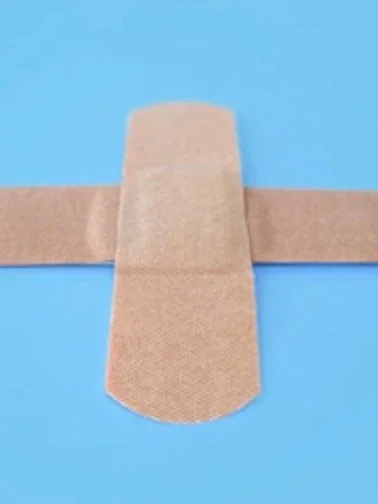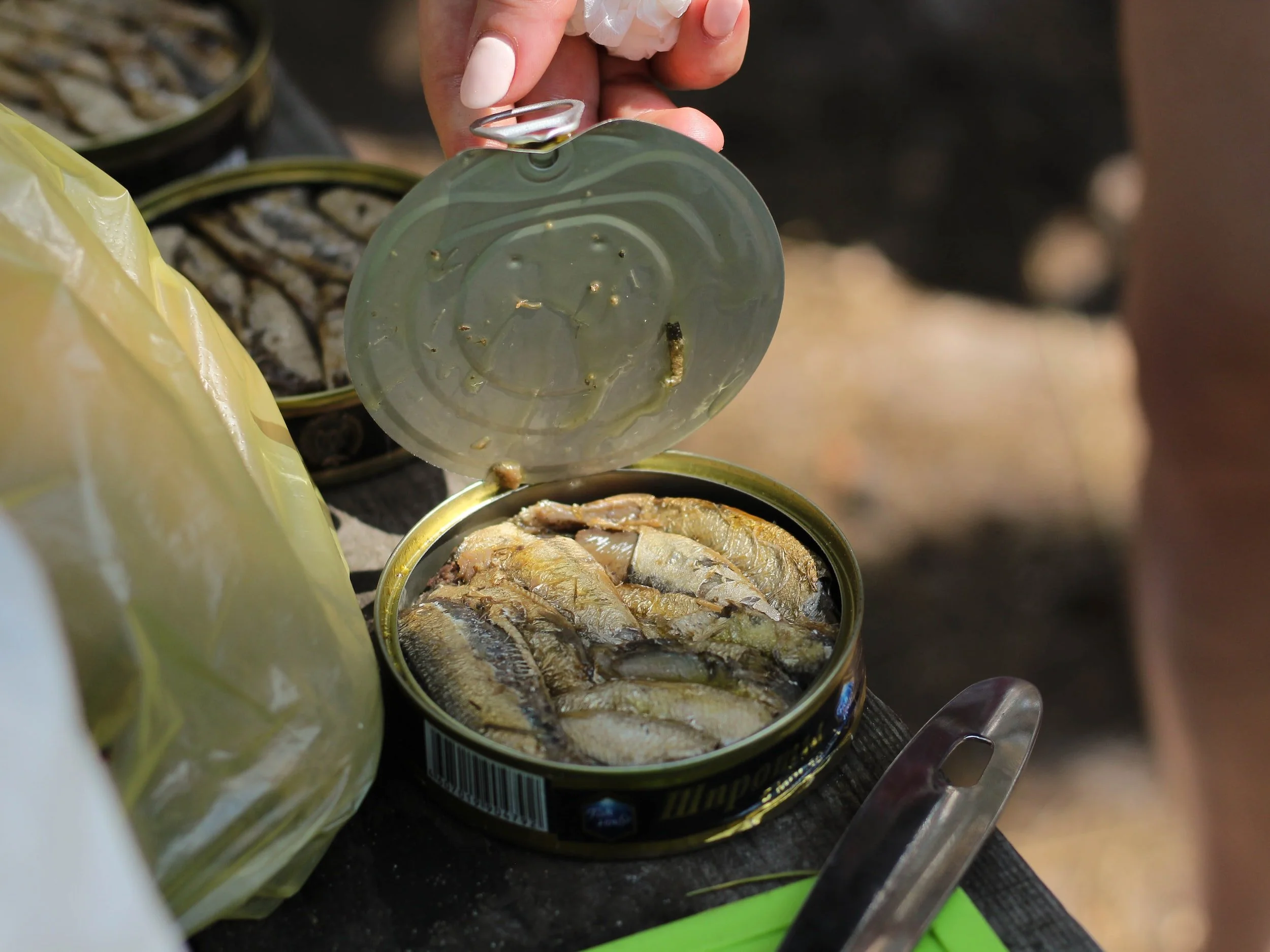Transformational Bandaids
Isaiah 6: 1 - 8 (CEB)
In the year of King Uzziah’s death, I saw the Lord sitting on a high and exalted throne, the edges of his robe filling the temple. Winged creatures were stationed around him. Each had six wings: with two they veiled their faces, with two their feet, and with two they flew about. They shouted to each other, saying: “Holy, holy, holy is the Lord of heavenly forces! All the earth is filled with God’s glory!”
The doorframe shook at the sound of their shouting, and the house was filled with smoke. I said, “Mourn for me; I’m ruined! I’m a man with unclean lips, and I live among a people with unclean lips. Yet I’ve seen the king, the Lord of heavenly forces!”
Then one of the winged creatures flew to me, holding a glowing coal that he had taken from the altar with tongs. 7 He touched my mouth and said, “See, this has touched your lips. Your guilt has departed, and your sin is removed.” Then I heard the Lord’s voice saying, “Whom should I send, and who will go for us?”
I said, “I’m here; send me.”
——————-
If you ever need a bandaid, just ask me. I carry them in my purse, all the time, and I’m happy to share. I wasn’t always a bandaid person. I started carrying them with me around 2006, not long after I became an aunt. Kids fall, they get scrapes and cuts, and sometimes you need a bandaid for that. But that’s not the reason I still keep them with me.
Once when I was walking my kids to school there was a family sitting on a bench on the playground. The child, who was probably in kindergarten, was crying and holding his knee. I said to his parents, “Do you need a bandaid?” And I reached around to open my purse. When I looked up the man was shaking his head no, and the woman was nodding her head yes. And then they looked at each other with confusion. The man said, “He’s fine. He didn’t even break the skin.” And the woman opened her eyes wide and said very deliberately, “A band aid would be very helpful. Thank you.”
That mom knows what I know. Bandaids work, whether you really need them or not.
If a kid falls down and gets the wind knocked out of them, even if they aren’t bleeding, or wounded, they often think that they are not ok. They might even believe that they are bleeding when they aren’t. Putting on a bandaid is a kind of sign-act, I might go so far as to say it’s a ritual. It communicates something to the child who is wearing it, “You’ve been through something hard, but you’re ok. You’re taken care of. You’re good.”
I’ve seen a bandaid save a trip to the zoo. I’ve seen a bandaid save a day at the beach. I watched that kindergartener on the playground get his bandaid, get up, and walk right into school. This may seem tricky, or even deceitful, but it’s not. When I put a bandaid on a child who doesn’t have a cut or a scrape, but who feels like they are not ok, I am helping them to understand what is already true. They are, in fact, ok. They are taken care of. They are good.
It’s been heartbreaking to learn that bandaids lose their transformational power as we get older. I wish I had bandaids that worked on our tweens and teens. Adolescence seems like one tumble after another, a constant struggle to find balance, care for social and emotional wounds, and keep going. That was true for me growing up, and it was hard enough in the 80’s and 90’s, but today’s kids do that with the added pressure of social media, overwhelming commercial influence, and a pandemic.
I don’t have enough bandaids, and they aren’t the right size anyway. But I see our youth finding their own ritual band aids. I love that here at Decatur First on Wednesdays and Sunday nights, youth group starts with a check-in, and not just any check-in, but this question, “How is it with your soul?” The question itself is a kind of antibiotic ointment, right? Whatever is hurting, whatever despair or insecurity threatens to infect me, I come into this place, and these people think I’m worth asking about, and not about what I wear, what sport I play, or what my grades are… how is it with my soul? It’s not as quick and obvious as a bandaid, but asking and answering that question can, over time, instill a sense of divine worth in a person. My soul matters. Of course after everyone checks in, they goof off and play mad games in the gym. That’s what a therapist might call Accumulating Positive Emotions, which is like packing extra bandaids in your backpack. You know you’re going to get bumps and bruises during the week, so on Wednesdays and Sundays we check-in, goof off, and have fun so we’ve got reinforcements to keep us going.
The gift of adolescence is that you still know you need the bandaid, in some form or another. The problem with adults is that we forget that. Our bumps and bruises are often ignored. We don’t tend to our wounds well, and we don’t have a designated youth group to help us pack our backpack with resources for the week. All too often when adults look for that kind of community in church we get something else. The response to our wounds is either judgement that hurts more or weak platitudes like, “Don’t worry. God’s got this.” that minimize our pain. The folks who speak from this pulpit try very hard to avoid both of those, not because it’s not true, but because it’s not helpful. When you’re wounded, or you think you’re wounded, the last thing you need is someone saying, “This is what you did wrong.” And it’s also not helpful to say, “everything’s fine, you’re not actually hurt, quit making a big deal out of it.” That doesn’t work on kids, and it doesn’t work on adults.
The angels in the temple with God and Isaiah knew this too. Isaiah was a prophet in Israel almost 800 years before Jesus was born. This morning’s text is his retelling of his call story, when God showed up in person and asked “whom shall I send?” and Isaiah said, “send me.” We write hymns and songs about that kind of faithfulness, but we usually leave out the part right before that.
Before Isaiah raised his hand and accepted his call, he said this, “Mourn for me! I’m ruined!” The King James translation says, “Woe is me, for I am undone.”
Isaiah’s despair is a little surprising. God showing up is rather glorious and intense to be sure, but you might think Isaiah would be honored by this visit, maybe awe-struck but also delighted? But Isaiah’s reaction is far from pleasant, he feels deep insecurity and failure. Something divinely good is happening, but he can’t take it in, because he doesn’t like himself. He is undone.
We don’t know God’s reaction to this, because it’s not in the text. But in my imagination, God hears Isaiah’s authentic cry of despair, has compassion on him, looks over at the angels and says, “Did anyone bring a bandaid?”
God had already chosen Isaiah, and his laments were not going to change God’s mind. God knew that Isaiah was good and worthy of this calling. That’s why God was there in the temple. Like the dad on the playground, God knew that Isaiah was fine.
But Isaiah didn’t know that. Thankfully, God is also the mom on the playground, and knows what we need. We need to know that we are ok, that we are loved, that we are good. So, having no bandaids, one of the angels swooped down and grabbed a hot coal from the altar. The angel touched Isaiah’s lips and said, “See, this has touched your lips. Your guilt has departed, and your sin is removed.”
Isaiah needed that, an active-remembering that he was worthy of life with God. And we need that too. We need to remember it over, and over, and over again. So God has graciously provided rituals and sign acts so that we can reconnect with who we are. Some of these rituals are ordained by the church as sacraments - consecrated bread and juice, blessed water, ordinary reminders of extraordinary grace, and our undeniable place in the family of God.
So we can pack our backpacks this morning to carry us through the week - singing, praying, receiving communion - reinforcements so that the bumps and bruises coming our way don’t make us feel undone. But God’s grace is not limited to this space and time. If we are mindful, and sometimes even when we aren’t, God offers practices and signs to keep us in touch with our goodness and God’s love.
When I hold that first cup of hot coffee in my hands in the morning.
When I look at the cold earth and see the first shoots of spring’s new life.
When I stretch in a downward facing dog
and feel the space created around my spine.
When I bump into one of you out in the world.
When my dog chooses my lap, out of all the comfy places in the house, to lay her head on.
These things help me understand what is already true.
God says, “You’re going through something hard, but look - you are, in fact, ok. You are taken care of. You are loved. You are good. Put this in your backpack, you’re going to need it later.”
Amen.






